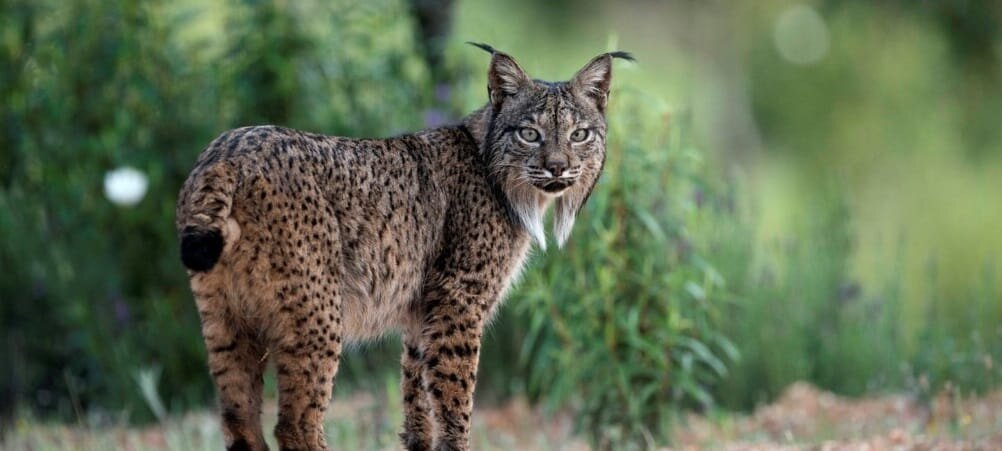The Iberian lynx is an endangered species, and Portugal and Spain decided a few years ago to create a program to protect and reintroduce specimens. The results are very positive, and the number of wild lynxes is increasing today with the reintroduction of 2 specimens. Indeed a couple of Iberian lynxes will be released today in the Guadiana valley, in the Alentejo, bringing to 109 the number of specimens of the species living in the wild in Portugal, when there were none only one (!) listed recently. The Portuguese Institute for the Conservation of Nature and Forests (ICNF) said it was the second release of lynxes into the wild since the start of the year. Lisbob, the expatriate assistant, tells you all about this successful reintroduction of the wild lynx in Portugal and Spain.
Success for the reintroduction of the Wild Lynx in Portugal: 2 new specimens released today
Quinde and Quisquilla enlarge the family of wild lynxes
They are a couple that has just been reintroduced into the wild. These are the male Quinde and the female Quisquilla, born in captivity in 2019 at the Iberian Lynx Breeding Center of El Acebuche in the Doñana National Park in Andalusia. It is from this center that lynxes released by the Institute for the Conservation of Nature and Forests (ICNF) are supplied.
The two lynxes were released with radio collars in the Corte Gafo area in the Beja district. It is a reintroduction area for the species in Portugal - the Guadiana Valley - and even if they are at large, they will still be monitored by an ICNF team.
The reintroduction made this week is the second this year in Portugal after the release of three lynxes on February 18. The ICNF is expected to release a total of seven lynxes (three women and four males) this year.
The organism estimates that the population of Iberian lynxes living in freedom in Portugal is made up of 107 animals identified and watched, a number which rises today to 109 with the release of Quinde and Quisquilla.
The current population consists mainly of young lynx aged one to three years and is concentrated in Mértola and Serpa, but there are small foci or dispersed specimens in Castro Verde and Almodôvar, in Alentejo, and Alcoutim in Algarve.
From 1 to 109 specimens in a few years
From 1 to 109 specimens in a few years
As part of the "LIFE + Iberlince" project, the ICNF started to release Iberian lynxes into the wild in December 2014 in order to reintroduce the species into the wild.
Liberation began when there was only one specimen of the species known in Portugal, the male Hongo, in isolation in the area of Vila Nova de Milfontes in the district of Beja.
Hongo, born in 2011 and last located in Spain in 2012, moved to Portugal, where he was detected in a hunting area at Vila Nova de Milfontes in 2013, and was found dead, victim of a crash in 2015 on Highway 23, near Vila Nova da Barquinha, district of Santarém.
36 years old without wild birth
The first proven births of the Iberian lynx species in the wild in Portugal since the 1980s took place in March 2016 and the first reproduction of lynxes already born in the wild in the Guadiana valley took place in May 2018.
Since March 2016, the ICNF has counted 91 births of Iberian lynxes in the wild in Portugal, the majority (75) having been born in the last two years (29 in 2018 and 46 in 2019), which "attests to the success" of the process of reintroduction of the species in Portugal.
According to the ICNF, 2019 was a "particularly favorable" year for the Iberian lynx in Portugal, due to the birth of 46 cubs in the wild and the creation of territories occupied by 13 breeding females.















